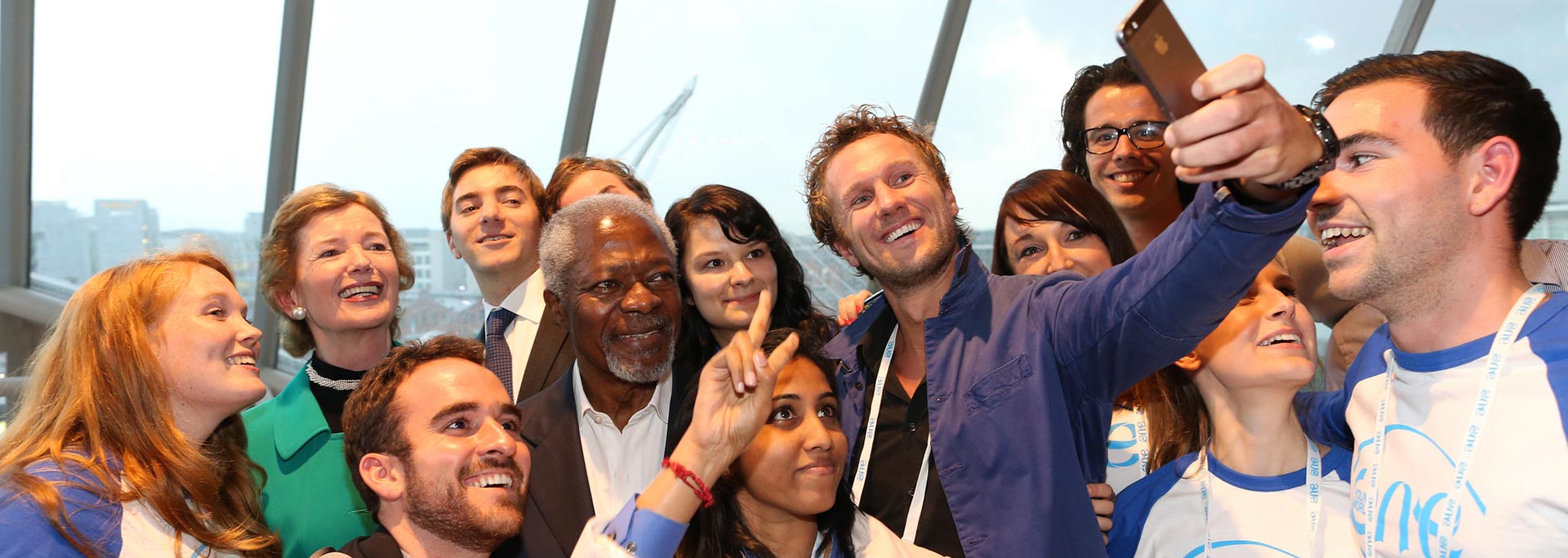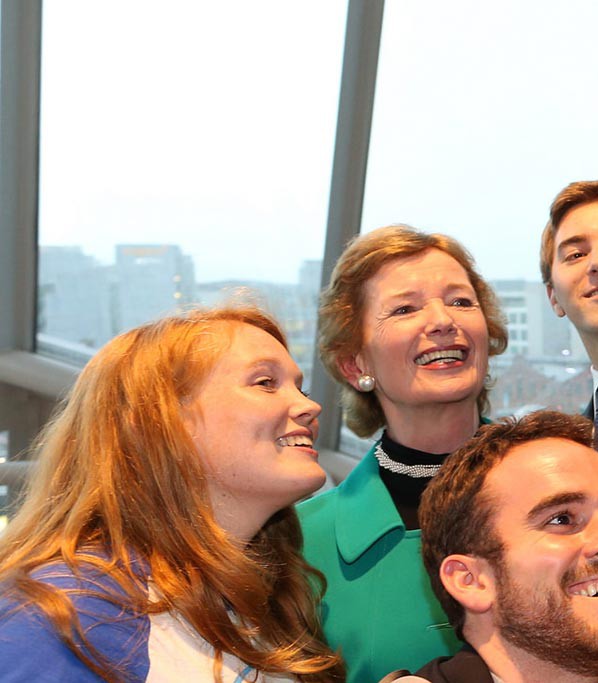The work of the Foundation is guided by the Principles of Climate Justice, and builds on its successes to date, its core competencies and proven ways of working: Thought leadership, Bridging, Convening. It takes a ‘leave no one behind’ approach to climate change and development policies.
The Foundation uses its unique position amongst civil society and policy-makers to bring together multi-disciplinary stakeholders in order to promote a climate justice approach; an approach that is people-centred, informed by human rights and creates the conditions necessary for a transition to a more equitable future.
Amplifying the voices of the poorest people in the most vulnerable situations is central to the work of the Foundation. The Foundation focuses on efforts to achieve sustainable and people-centered development as well as raising awareness of the need to respond to and cope with the injustices inherent in a climate affected world.
Thought Leadership
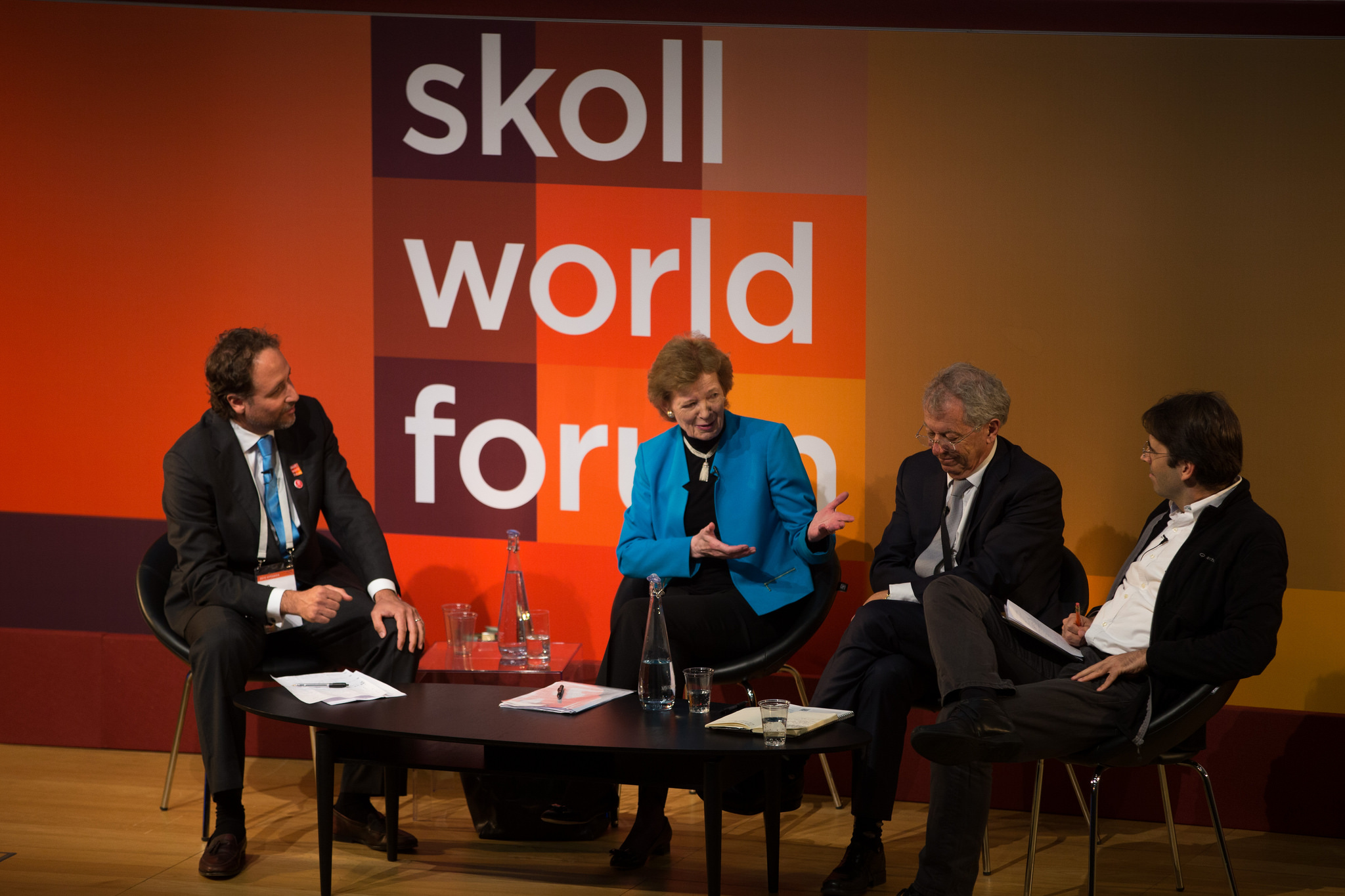
The Skoll World Forum convenes nearly 1,000 delegates from the social, finance, private and public sectors in Oxford each year. In 2015, it hosted a special session on Zero Carbon the Climate Justice Way with Ion Yadigaroglu, Managing Principal and Co-Founder, Capricorn Investment Group (moderator, left), Mary Robinson, President Mary Robinson Foundation, Sir David King, Foreign Secretary’s Special Representative for Climate Change, Foreign & Commonwealth Office, and Tasso Azevedo, Socio Environmental Entrepreneur, Climate Observatory/ Avina Foundation (left to right). Oxford, 16 April (Photo: Skoll World Forum)
Thought leaders are the informed opinion leaders and the go-to people in their field of expertise. They are trusted sources who move and inspire people with innovative ideas. They turn ideas into reality. The Foundation has established itself as a thought leader on climate justice and will continue to be at the cutting edge of developments in the field of climate justice. As a generator of ideas, a creator of linkages and a pioneer of people-centred approaches with a focus on women and gender equality, the Foundation provides thought leadership in the fields of international climate change, sustainable development and human rights policy.
Bridging
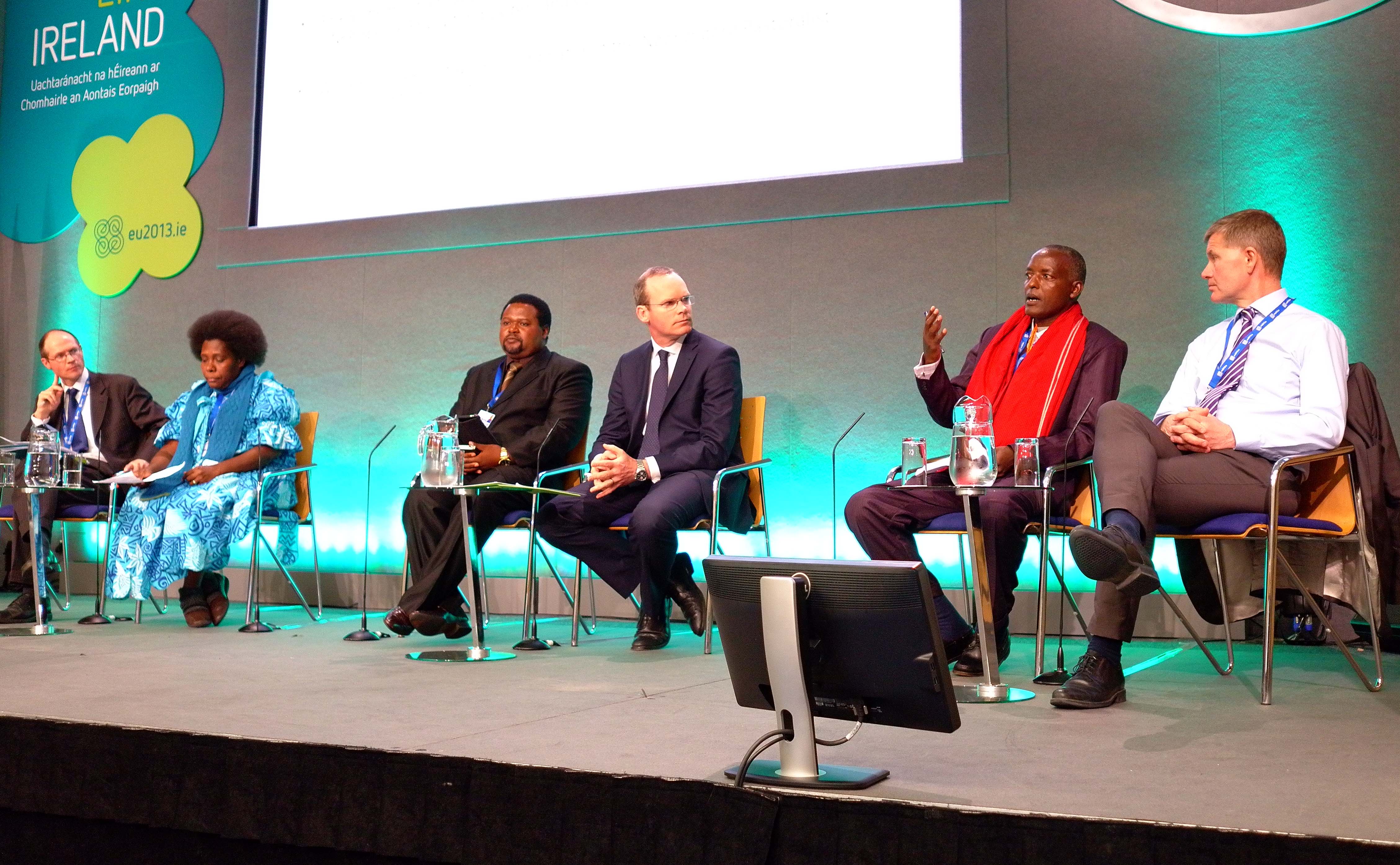
Key policy makers in global development and people living on the frontlines of climate change and food insecurity participated in a panel discussion called “Risk, Rights, Knowledge, Empowerment: Hunger – Nutrition – Climate Justice” at the ‘Hunger – Nutrition – Climate Justice Conference in 2013. The conference format was designed to ensure that grassroots people, mostly from farming communities, were enabled to participate fully as delegates, panellists and facilitators. One third of the delegates were women and one third of the delegates were grassroots. These unique perspectives ultimately contribute to better policy design. From left to right: Olivier De Schutter, UN Special Rapporteur on the Right to Food, Dolsie Lorna Kalmatak, trainer for the Solar Dryer Project, Vanuatu, Augustine Njamnshi, Executive Director of the Bioresources, Development and Conservation Programme, Cameroon, Simon Coveney TD, Irish Minister for Agriculture, Food and the Marine, William Ole Seki, Coordinator of the Ngorongoro Pastoralist Development Organisation, Tanzania, and Erik Solheim, Chair of the Development Assistance Committee, OECD. Dublin, April 2013. (Photo: Sophie Molins)
Bridging implies linking or bringing together unconnected things. The Foundation builds bridges between people and disciplines. It connects grassroots people, with a focus on women, with policy makers and world leaders, directly through convenings and by amplifying the voices of the vulnerable. Bridging disciplines brings together fields of expertise and processes that the experts within those processes feel are separate – this is often called a siloed approach. Examples include linking human rights and climate change as disciplines as well as the processes and communities associated with them; or social protection and access to sustainable energy to improve access for the poorest and most vulnerable people.
Convening
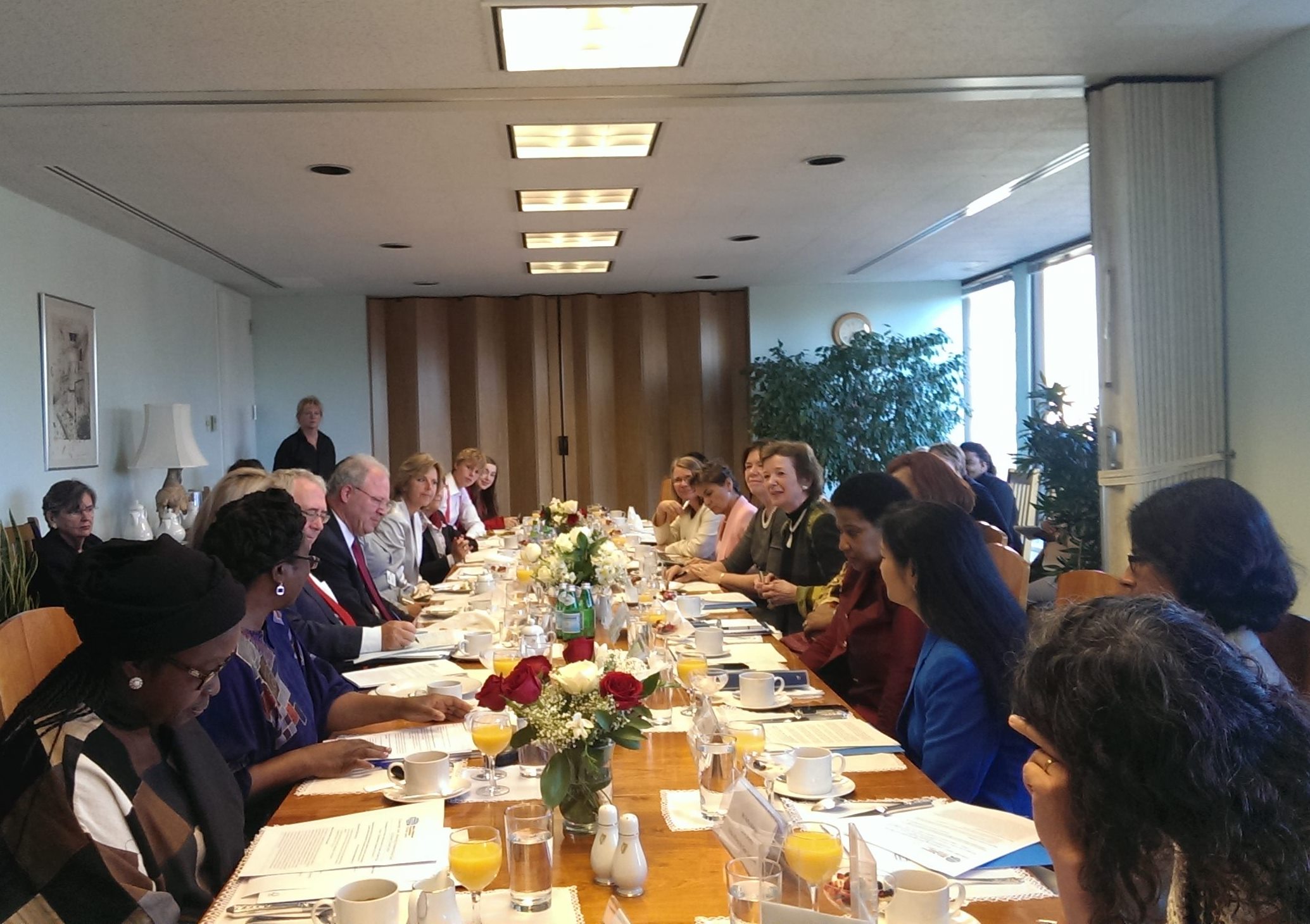
The Foundation uses its convening power to bring together high level stakeholders, to generate support for climate justice. During a meeting of a group of women leaders on gender and climate change on the side-lines of the 67th United Nations General Assembly in New York, twenty international leaders agreed an action plan to secure a new agreement on women’s participation at COP18. Participants included Christiana Figueres, Executive Secretary of the UNFCCC, Ms Delphine Batho, Minister of Environment, France and Ms Dipu Moni, Minister of Foreign Affairs, Bangladesh. 24th September 2012.
The Foundation has identified its President’s convening power as a key asset. Through experience we know how to leverage this convening power to bring a powerful and unusual mix of actors together, always emphasising gender balance, and have pioneered innovative approaches to convening that maximise dialogue based on listening and learning. The Foundation has both the credibility and the capacity to convene in the margins of major events or in stand-alone flagship events, with UN and with government, business and civil society partners.
